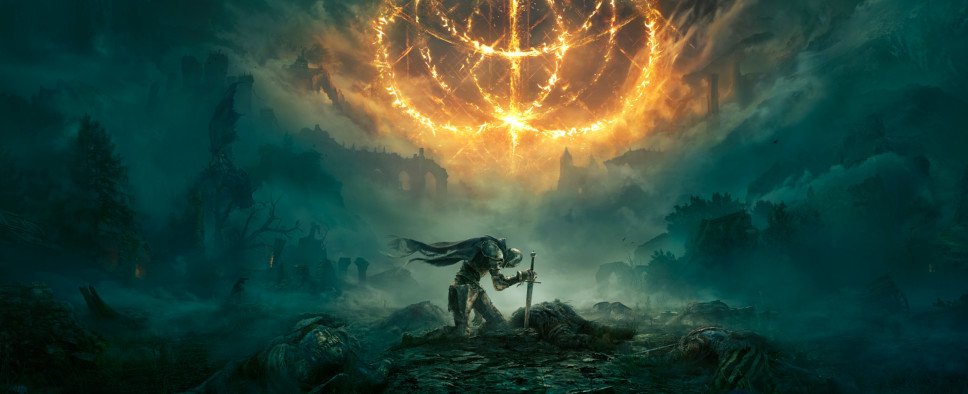Elden Ring Review - Page 2
-
Category: ReviewsHits: 15173

Article Index
I would go so far as to call Elden Ring the Texas of Dark Souls. Everything's bigger in Elden Ring. When you're just starting your journey and get your first map piece, you think to yourself, "Wow, this place is quite large." But then you keep playing and at some point, realize that what you thought was the game's world is actually just one of its many regions. And once you think you know how large the map is, you discover that there's another subterranean layer to it with its own regions and secrets.
Usually, I'm not too fond of open worlds, but Elden Ring doesn't really follow the standard AAA formula, and instead gives you a large map and plenty of freedom. If you don't want to follow the main path straight away, you can just pick a direction and go.
The world is positively packed with minor dungeons along the lines of mines, caves, and catacombs. These usually have some theme to them, a few valuable items, and a boss. But even on the overworld itself, you'll find plenty of enemies to fight, chests to open, and bosses to face. In fact, the game has a day-night cycle, and some of the bosses appear only at night in specific spots, making you wonder what other kinds of hidden events the game has. Aside from that, you can discover plenty of assorted points of interest that range from giant-driven caravans to walking mausoleums and various environmental puzzles.
And every once in a while, you'll navigate yourself into one of the so-called Legacy Dungeons that put you into some castle that serves as a master class in level design and features multiple ways to advance, secret passages, architecture that loops around on itself, and all the other awe-inspiring stuff you're used to seeing in FromSoftware's games.
There's this sense of wonder that permeates your entire journey. FromSoftware's games are known for their impressive visual design, and Elden Ring takes that to a new level. Wherever you go, you can stumble onto some breathtaking vista.
Beyond just that, while, in the usual Dark Souls style, Elden Ring is set in a dying, or rather undying, world, things aren't quite as dire here as they were in Lordran. You get plenty of meadows and neat little groves where harmless critters skitter around, birds overlook things from their perches, and even turtles make an occasional appearance. And all the while, the ground is littered with skulls, mad undying warriors are still hanging around their ruined outposts and Nazgul-looking riders patrol the roads at night.
This combination of life and death really makes the world feel unique and makes you want to explore it.
And this brings us to the original question - what kind of game is Elden Ring? It's what you want it to be, really. Some people treat these games as an opportunity to fight some tough bosses and see everything else as a mere distraction. Some play them as rhythm games, boiling the gameplay down to pressing the dodge button at the right time and counter-attacking afterward, progression systems be damned.
Personally, I view these games as vehicles for exploration. You scour the world for cool-looking locations and bits of lore, in the process discovering plenty of gear and upgrade materials. You combine those with your understanding of the game's systems, and all of a sudden, even the toughest encounters become merely a test of sorts - were you able to put together a character capable of defeating this tough enemy without much effort? If the answer is yes, you get to advance. And if it's a no, especially in Elden Ring, you can always go explore some more, or just look for some hidden sequence-breaking path allowing you to bypass your current roadblock, explore the next area, and then return much stronger and wipe the floor with the previously tough opposition.
Speaking of upgrade materials. You can upgrade your weapons in Elden Ring all the way to +25 for the regular weapons and +10 for the more unique special weapons. This is a bit of a double-edged sword because once you know where to find the smithing stones you need to upgrade your stuff, you can make your weapons really strong really early. On the other hand, this creates a scenario where upgrading your weapons is more important than ever because the difference between an upgraded weapon and a basic one is staggering.
If there's anything negative to say about Elden Ring's world, it's that it is perhaps a little bit too large, which resulted in a number of compromises that don't exactly improve the overall experience. Multiple bosses in the game are just iterations of the same boss. On top of that, the game even borrows some enemies from its predecessors.

